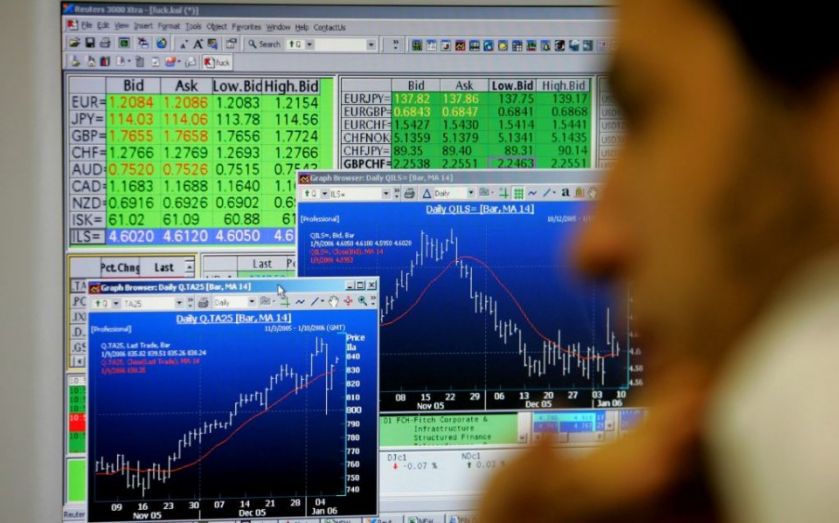Five reasons why the FTSE 100 is pushing towards a record high: Greek debt negotiations, Draghi’s “Bazooka” and a falling pound

The stock market is edging towards a record high, moving closer to the record of 6930 points it hit on 30 December 1999: or the year the euro was launched, Tracey Emin's "My Bed" went on show at the Tate, everyone fretted about the Millennium Bug and the dotcom bubble was busily inflating.
So here's what's giving the FTSE 100 a boost this time around:
Greek debt negotiations
Greek debt negotiations, which have dominated markets, will reach a cliffhanger today, as Eurozone finance ministers convene for another Eurogroup meeting in Brussels and with the Greek debt crisis right at the top of the agenda. Any agreement is likely to plump up markets.
Draghi's €1 trillion "bazooka"
European Central Bank governor Mario Draghi finally launched his "big bazooka" towards the end of last month, announcing a €1 trillion quantitative easing package which will help quench the credit parched single currency bloc. The belief that this will stave off deflation and kick-start growth in the anaemic region, which is also the UK's biggest trading partner, has lifted shares.
Brighter economic picture
A batch of recent economic data has painted slightly brighter growth prospects for the UK and Eurozone economies. Bank of England governor Mark Carney has said that low inflation and faster wage growth will bolster the economy. Additionally, in its November inflation report, the bank raised its growth forecast for 2016 and 2017.
Meanwhile, the Eurozone economy grew 1.4 per cent last year thanks to a last-minute lift from its "star economy". Germany's gross domestic product smashed expectations, jumping 0.7 per cent in the last quarter of 2014. The euro area will also be helped by low oil prices, a weak Euro and a flush of cash from its quantitative easing programme.
No interest rate rise
Martin Weale, a monetary policy committee hawk who consistently voted for a rate rise since August last year, has said fears over the UK economy slipping into a "deflationary spiral" persuaded him to change his vote. This came after the Bank of England revealed interest rates could drop even further below their historic low of 0.5 per cent, giving investors more assurance that there won't be a rate rise any time soon.
Falling pound
Over the last year, a slew of sparkling economic data out of the United States has caused the dollar to appreciate against the pound. Despite a recent rally, this is good news for UK companies, and especially those which export, because their balance sheets will be boosted when they come to convert dollar-denominated sales back into pounds.